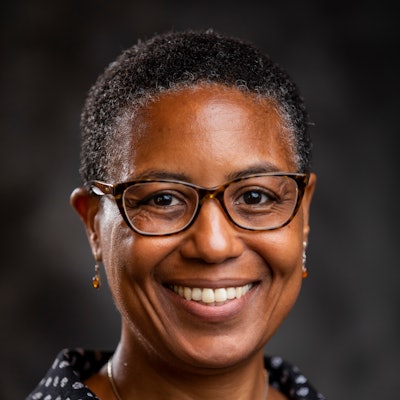At the start of the 1922-1923 academic year, 39-year-old Lucy Diggs Slowe (1883-1937) returned to her alma mater, Howard University, to become its inaugural, full-time occupant of a new administrative role in higher education – the dean of women. The first African American woman trained in what is now student affairs, Slowe was a pioneer many times over -- a co-founder and first president of the first Black sorority, Alpha Kappa Alpha; the first Black woman to win a national sports title (in singles tennis); and the principal of the first junior high school for African American students in Washington, DC. Along with many of her white dean peers and like some contemporary chief diversity officers, she was hired as a risk manager. In the early 20th century landscape of racially segregated colleges and universities, campus presidents turned to women with advanced degrees and years of teaching and administrative experience to help them with their diversity problem – growing numbers of women students on their campuses.  Dr. Tamara Beauboeuf-Lafontant
Dr. Tamara Beauboeuf-Lafontant
In the 1920s, women students at Persistently White Institutions (PWIs), were approaching numerical parity with men, and by the 1940s, women would outnumber men at historically Black colleges and universities (HBCUs). Although such students brought in needed tuition dollars, many presidents of coeducational institutions were uneasy with their presence. As a result, they hired deans of women whom they hoped would minimize the cultural impact of women students. Throughout the first half of the 20th century, these administrative newcomers operated on upwards of 90% of US colleges and universities.
Although often regarded as semi-professionals by men peers, deans of women viewed themselves quite differently. Understanding the power of the academic curriculum, they sought faculty rank, taught, and published. However, the core of their labors was the building of new institutional structures to foster curricular and co-curricular belonging for women students. Dean Slowe and her colleagues pursued what historian Jana Nidiffer terms “genuine access” for undergraduate women: the “feeling that you are welcome in the entire community and not ignored, demeaned, harmed, treated as a social stereotype, or otherwise made to feel threatened or peripheral.” For Slowe, such belonging empowered Howard women to “live more abundantly” as students and later as alumnae pursuing their life work.
Dean Slowe’s work at Howard University from 1922-1937 reflected the culture-shifting, change-making priorities of deans of women. She pressed the president for adequate university housing for women and insisted that it be managed with oversight from her staff but largely through student self-governance. She encouraged the establishment of a rich co-curriculum led by women students, viewing it as a necessary parallel to and extension of their academic study. In clubs, interest groups, volunteering, and intramural sports, asserted Slowe, young women demonstrated initiative, took up leadership roles, and honed critical interpersonal skills in preparation “for their debut to the world after college.”
Slowe and other deans of women understood the importance of peer relationships in student retention and instituted mentoring programs to offer welcome and support to the newest members of their campuses. As proponents for women’s expanded careers options, deans of women also provided guidance to broaden students’ vocational considerations, as well as advocated for women experiencing harassment in and outside classrooms.
Perhaps surprisingly, deans of women forged campus belonging by encouraging playfulness and fun among women students. At Howard, the signature tradition of Dean Slowe’s 15-year tenure was the Women’s Dinner. Every first Friday evening in November, Howard women students gathered to hear inspiring speeches from alumnae, engaged in humorous interclass contests, and voicefully showed campus pride, all on terms they set. Men students, faculty, and administrators were invited to observe the women’s festivities from the balcony of the dining hall.
The longevity of Howard’s Women’s Dinner poignantly reflects the power of belonging. When alumnae attended dinners, sent funds to support the attendance of current students, or wrote notes stating they “didn’t forget to remember,” they evidenced the enduring positive affect they felt to the campus and each other. It is a profound testament to the depth of this connection that cohorts of Howard alumnae and students organized the Dinner for almost a half-century – that is, for another 30 years following Dean Slowe’s death in 1937.
Deans of women were the first cabinet-level women administrators in higher education. Although mostly unknown today, they were also some of our first diversity officers who institutionalized forms of belonging for marginalized students. On the centennial anniversary of her appointment, I recall the work of Lucy Diggs Slowe and other deans of women to remind us of a historical fact: higher education has needed the labors and insights of such administrative innovators in order to make the inclusive changes which, over time, have become best practices for ensuring the growth and development of all students. In other words, Dean Slowe and other deans of women constitute an important chapter in the belonging narratives we are still writing.
Dr. Tamara Beauboeuf-Lafontant is a professor and the Louise R. Noun Chair in Gender, Women’s and Sexuality Studies at Grinnell College. She is the author of To Live More Abundantly: Black Collegiate Women, Howard University, and the Audacity of Dean Lucy Diggs Slowe.


















